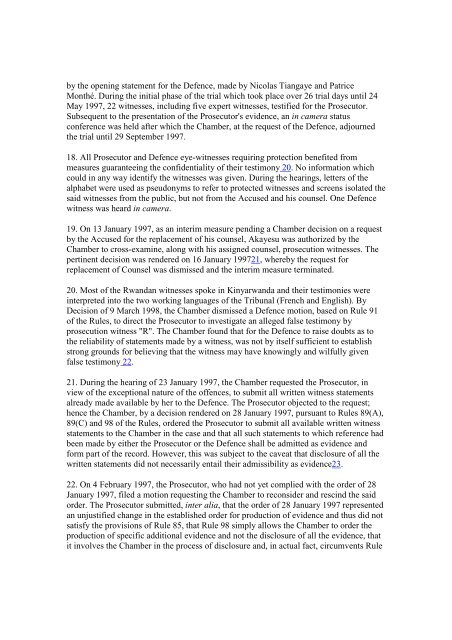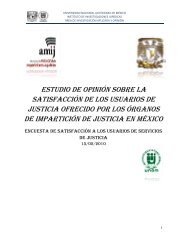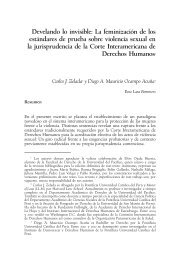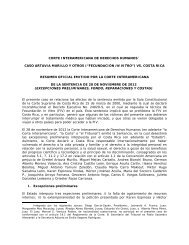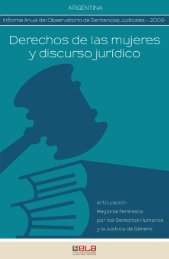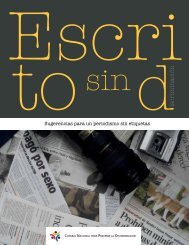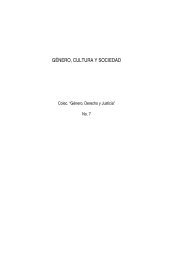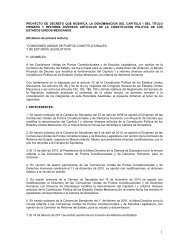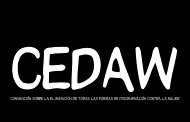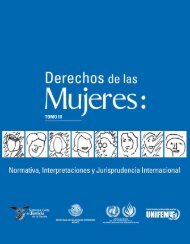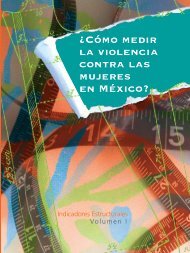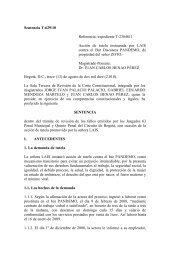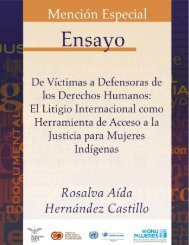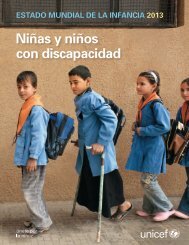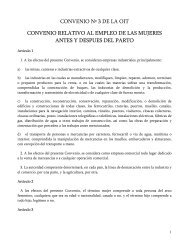Case No. ICTR-96-4-T - International Criminal Tribunal for Rwanda
Case No. ICTR-96-4-T - International Criminal Tribunal for Rwanda
Case No. ICTR-96-4-T - International Criminal Tribunal for Rwanda
- No tags were found...
You also want an ePaper? Increase the reach of your titles
YUMPU automatically turns print PDFs into web optimized ePapers that Google loves.
y the opening statement <strong>for</strong> the Defence, made by Nicolas Tiangaye and PatriceMonthé. During the initial phase of the trial which took place over 26 trial days until 24May 1997, 22 witnesses, including five expert witnesses, testified <strong>for</strong> the Prosecutor.Subsequent to the presentation of the Prosecutor's evidence, an in camera statusconference was held after which the Chamber, at the request of the Defence, adjournedthe trial until 29 September 1997.18. All Prosecutor and Defence eye-witnesses requiring protection benefited frommeasures guaranteeing the confidentiality of their testimony 20. <strong>No</strong> in<strong>for</strong>mation whichcould in any way identify the witnesses was given. During the hearings, letters of thealphabet were used as pseudonyms to refer to protected witnesses and screens isolated thesaid witnesses from the public, but not from the Accused and his counsel. One Defencewitness was heard in camera.19. On 13 January 1997, as an interim measure pending a Chamber decision on a requestby the Accused <strong>for</strong> the replacement of his counsel, Akayesu was authorized by theChamber to cross-examine, along with his assigned counsel, prosecution witnesses. Thepertinent decision was rendered on 16 January 199721, whereby the request <strong>for</strong>replacement of Counsel was dismissed and the interim measure terminated.20. Most of the <strong>Rwanda</strong>n witnesses spoke in Kinyarwanda and their testimonies wereinterpreted into the two working languages of the <strong>Tribunal</strong> (French and English). ByDecision of 9 March 1998, the Chamber dismissed a Defence motion, based on Rule 91of the Rules, to direct the Prosecutor to investigate an alleged false testimony byprosecution witness "R". The Chamber found that <strong>for</strong> the Defence to raise doubts as tothe reliability of statements made by a witness, was not by itself sufficient to establishstrong grounds <strong>for</strong> believing that the witness may have knowingly and wilfully givenfalse testimony 22.21. During the hearing of 23 January 1997, the Chamber requested the Prosecutor, inview of the exceptional nature of the offences, to submit all written witness statementsalready made available by her to the Defence. The Prosecutor objected to the request;hence the Chamber, by a decision rendered on 28 January 1997, pursuant to Rules 89(A),89(C) and 98 of the Rules, ordered the Prosecutor to submit all available written witnessstatements to the Chamber in the case and that all such statements to which reference hadbeen made by either the Prosecutor or the Defence shall be admitted as evidence and<strong>for</strong>m part of the record. However, this was subject to the caveat that disclosure of all thewritten statements did not necessarily entail their admissibility as evidence23.22. On 4 February 1997, the Prosecutor, who had not yet complied with the order of 28January 1997, filed a motion requesting the Chamber to reconsider and rescind the saidorder. The Prosecutor submitted, inter alia, that the order of 28 January 1997 representedan unjustified change in the established order <strong>for</strong> production of evidence and thus did notsatisfy the provisions of Rule 85, that Rule 98 simply allows the Chamber to order theproduction of specific additional evidence and not the disclosure of all the evidence, thatit involves the Chamber in the process of disclosure and, in actual fact, circumvents Rule


